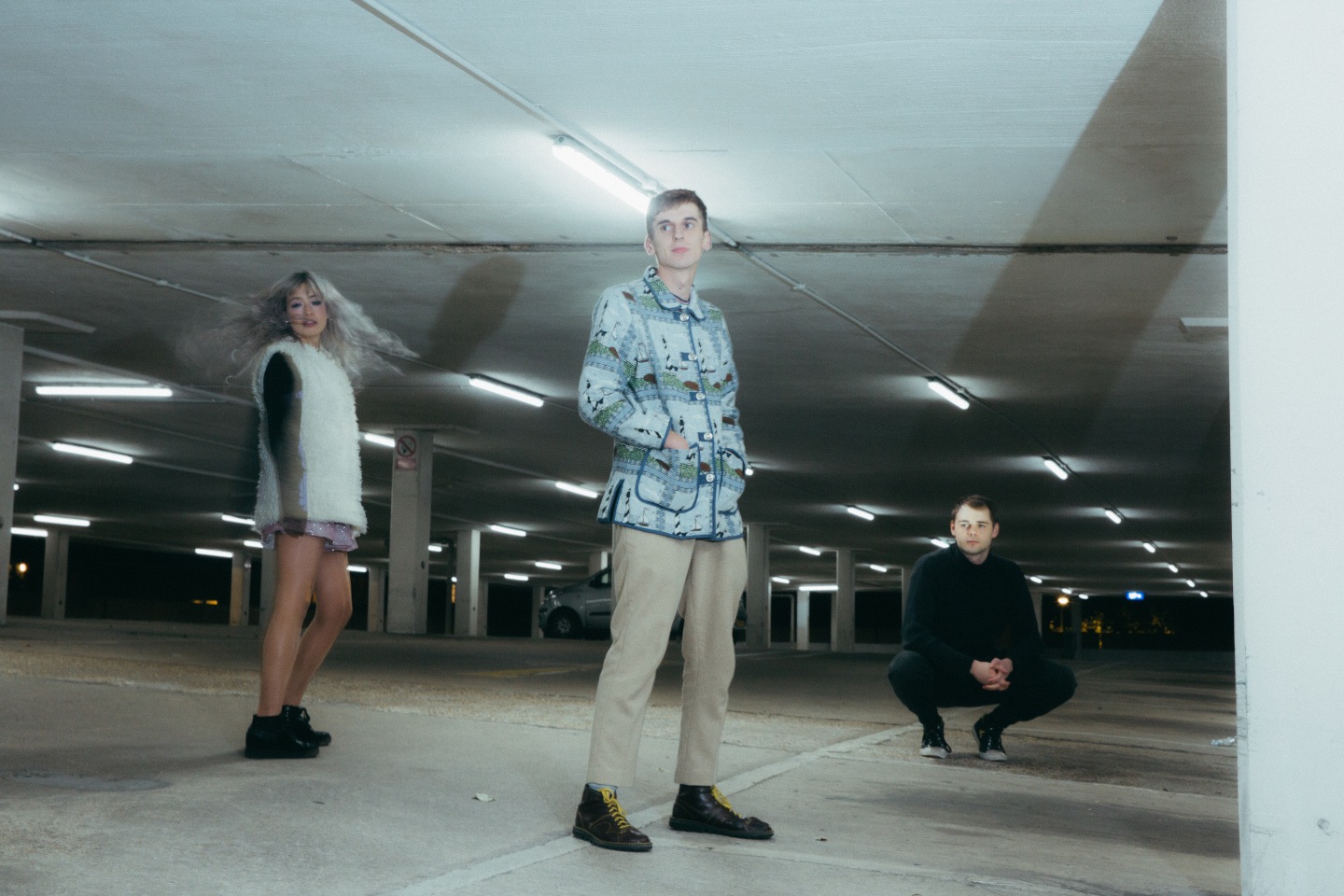
The FADER's longstanding GEN F series profiles emerging artists to know now.
Sarah Midori Perry used to spend a lot of time on the internet — specifically, back in 2012, when the internet felt more like an inexhaustible resource than a hopeless, intractable maw. Her family moved to the U.K. in the mid-2000s after 13 years in her hometown of Hokkaido, Japan, and most of her time was spent on an online message board for Japanese expats called MixB. It was a digital-age polyglot landscape, she says, that contributed to her immediate cross-cultural adaptability — and in her final year of university, she found herself wondering about what was next in her life. “I was definitely looking for something,” says Perry, in the bubbly and ever-curious tone that’s become her calling card as leader of the electronic-pop outfit Kero Kero Bonito. “I didn’t know what.”
Band members Gus Lobban and Jamie Bulled, however, knew exactly what they were looking for. They’d been friends since their shared childhood in the London suburbs, and the music they made together was a product of their playful relationship as instrumentalists and sound engineers — all they needed was a singer who could add a new dimension to their sound. A friend suggested checking out MixB, and through the luck of algorithmic digital advertising they crossed paths with Perry, who'd never been in a band beyond playing saxophone in junior high jazz band.

The connection was immediate, and Kero Kero Bonito have since found international success with their sugary, hard-shelled pop rooted in J-pop influences and Perry’s quietly optimistic bilingual raps. The latter often resemble a philosophic prescription for happiness; there’s a moment in “Trampoline,” from 2016’s Bonito Generation, where the beat drops away and Perry sings, “Even if you’re falling, that’s okay / There’s a trampoline waiting for you / It’s so easy, you just have to believe / 信じればいいんだよ [You just have to believe].”
Drawing from her mixed heritage, Perry’s lyrics are spiritually and geopolitically borderless. “Growing up, I always had to deal with, ‘Who am I? What is my identity?’" she explains. "I felt like everywhere I go, because of how I look, people will see me as just one side of my background. Mashing the two languages together is my way of saying, you can be both, and it’s fine!” That notion of inclusivity and collective joy is echoed on Kero Kero Bonito's 2014 single “Flamingo,” through buoyant winds and avian metaphor (“Black, white, green or blue / Show off your natural hue").

On their new album and Polyvinyl debut, Time ‘n’ Place, the trio adds indie rock and noise music to their electropop bread-and-butter, venturing into darker thematic territory. Whereas J-pop mainstays like Kyary Pamyu Pamyu influenced their earlier material, the band now looks to the recent work of Mount Eerie, which Lobban says is indicative of a certain “contemporary malaise.” “It’s not just like, ‘Oh, I’m fucked,’” he tells me. “It’s, ‘We’re fucked, but I’m hoping that the good times are going to come again. I think that’s where everybody’s at. That’s definitely where we’re at.”
Time ‘n’ Place highlight “Visiting Hours” was written after a life-threatening accident that sent Lobban’s father to the intensive care unit. The lyrics, which touch on everything from lackluster hospital food to the angle of the recovery bed, were taken directly from conversations between Lobban’s parents during that time: “I should let you go to bed / Brush your teeth take it easy get some rest / I'll be back here again tomorrow morning / I'll see you then,” sings Perry, before offering a final “night night.” “It’s not tragic, but definitely maybe...a little bit helpless," Lobban states. "But determined and hopeful at the end of it. It’s this really strange mix of horror and the euphoria of seeing that the worst hasn’t happened.”



That dichotomy is also palpable in album cut “Rest Stop,” which sounds like a cross between a nursery rhyme and a Merzbow track as a gentle melody is plunged into ambient static, contorted into an abrasive, industrial shape. Moving between poles of hope and despair, the song almost functions as a conceptual mission statement, and the music of Kero Kero Bonito lives in that same thin boundary between sadness and hope — those moments when we need to move forward, but can’t help reckoning with the idea of giving up.
The band tosses out songs that fall within this particular emotional register, ranging from “Raindrops Keep Fallin’ on my Head” to Marvin Gaye’s “What’s Going On” — but they agree that Charlie Chaplin’s “Smile” (“Smile, though your heart is aching…”), still stands as the quintessential example of finding the sad in the hopeful and vice versa. Lobban says that duality is indicative of a fast-fading cultural sensibility — that “the hope of ‘Smile’ and ‘Raindrops’ seems more distant than ever, and more quaint.” He later says that he sees Kero Kero Bonito as “an expression of three anxious but hopeful individuals” coming to grips with sadness in their own way. “Without darkness, there is no light," Perry states. "That’s just how reality works.”
